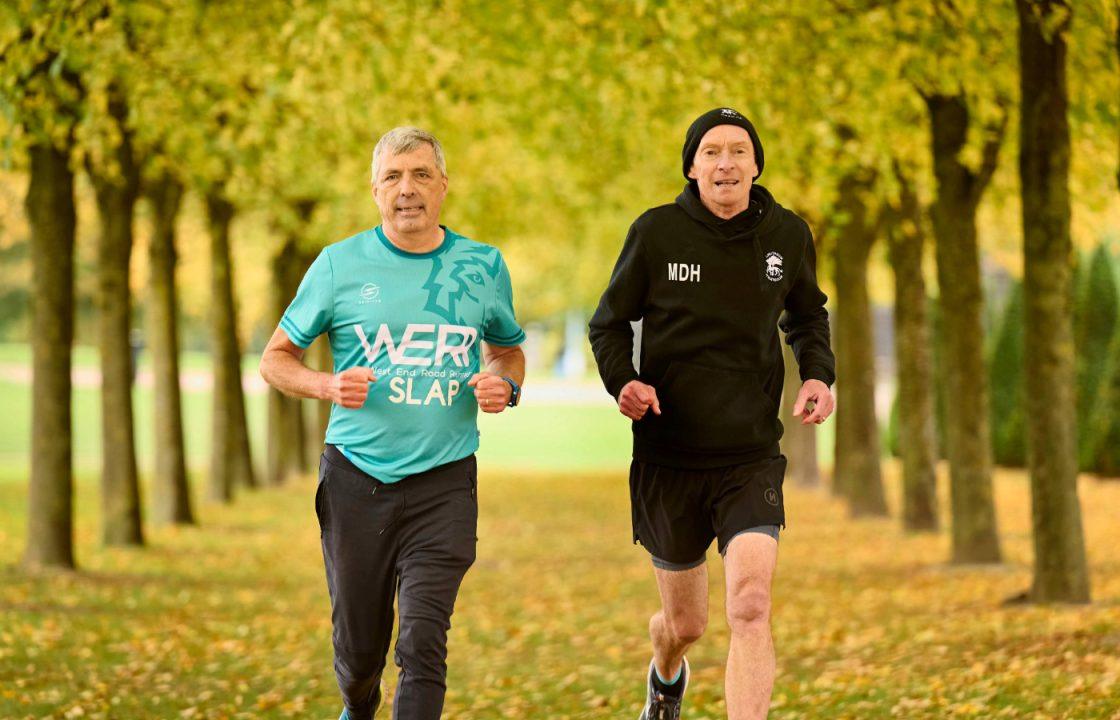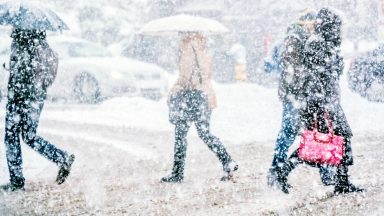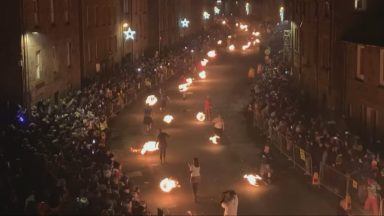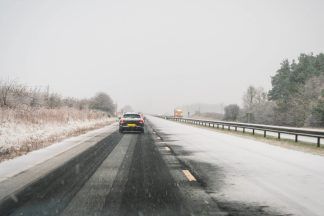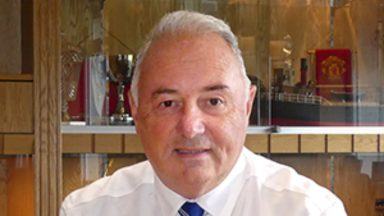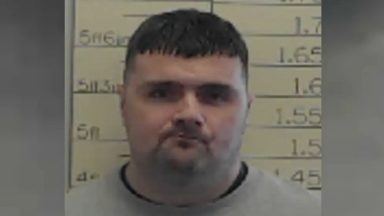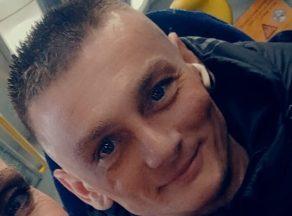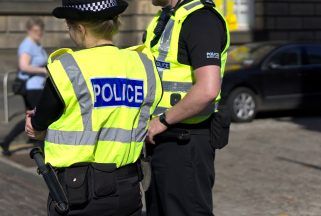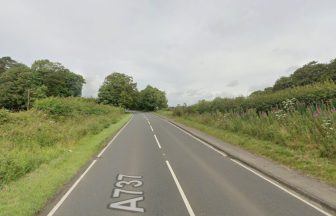Two runners were saved by the same defibrillator after suffering cardiac arrests within weeks of each other in Glasgow.
Malcolm Hughes, 64, from Linlithgow, collapsed and stopped breathing in March this year during a relay race on Glasgow Green.
Weeks later in April, Stephen Lappin, 59, from Glasgow, took part in a lunchtime run in the park and also suffered a cardiac arrest.
Malcolm recalled the incident, saying that he blacked out while he was running after he began to feel unwell.
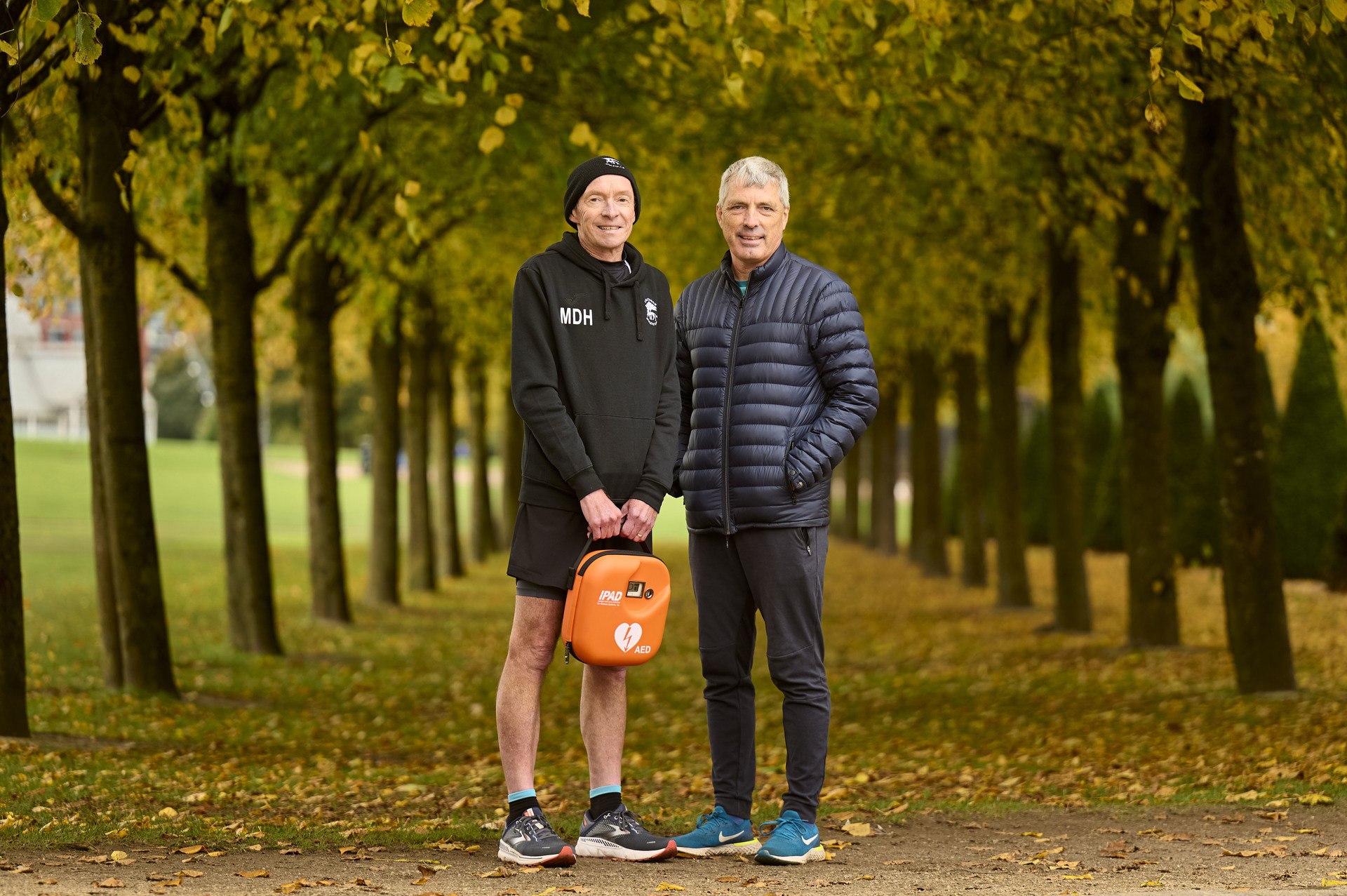 British Heart Foundation
British Heart Foundation“Another runner phoned 999 and was directed to the defibrillator which was about 200 metres away at the boathouse. I’m just incredibly fortunate that it happened when it did, where it did,” he said.
Stephen also spoke about his own experience, saying: “I decided to come and run the 3k on the Green event. People told me that I collapsed spectacularly and got everyone’s attention.
“Someone went to fetch the defibrillator, and I understand that I had several minutes of CPR and then one shock from the defibrillator,” he said.
Both men were saved by the same defibrillator, and credited the device being so close to them as the reason for their survival.
“The fact that the defib was there, so close to me, is the reason why I am here today. What are the odds of two people and the same defib? Its miraculous,” Stephen added.
In both incidents, members of the public called 999, and emergency services used the national network The Circuit to direct them to the defibrillator, which was located on the wall of a nearby boathouse.
The Circuit allows emergency services to locate and direct callers to the life-saving devices.
The defibrillator that saved Stephen and Malcolm was registered on the network, and the emergency call handler was able to give out the code to unlock its box so it could be used.
Now, the two runners are calling for organisations to register their defibrillators, which will make them publicly available in an emergency.
“One of the main reasons that I’m still alive today is that the passersby who witnessed my collapse were directed to the nearest defibrillator by the emergency services,” Malcolm said.
“This was only possible because the defib had been registered on The Circuit.”
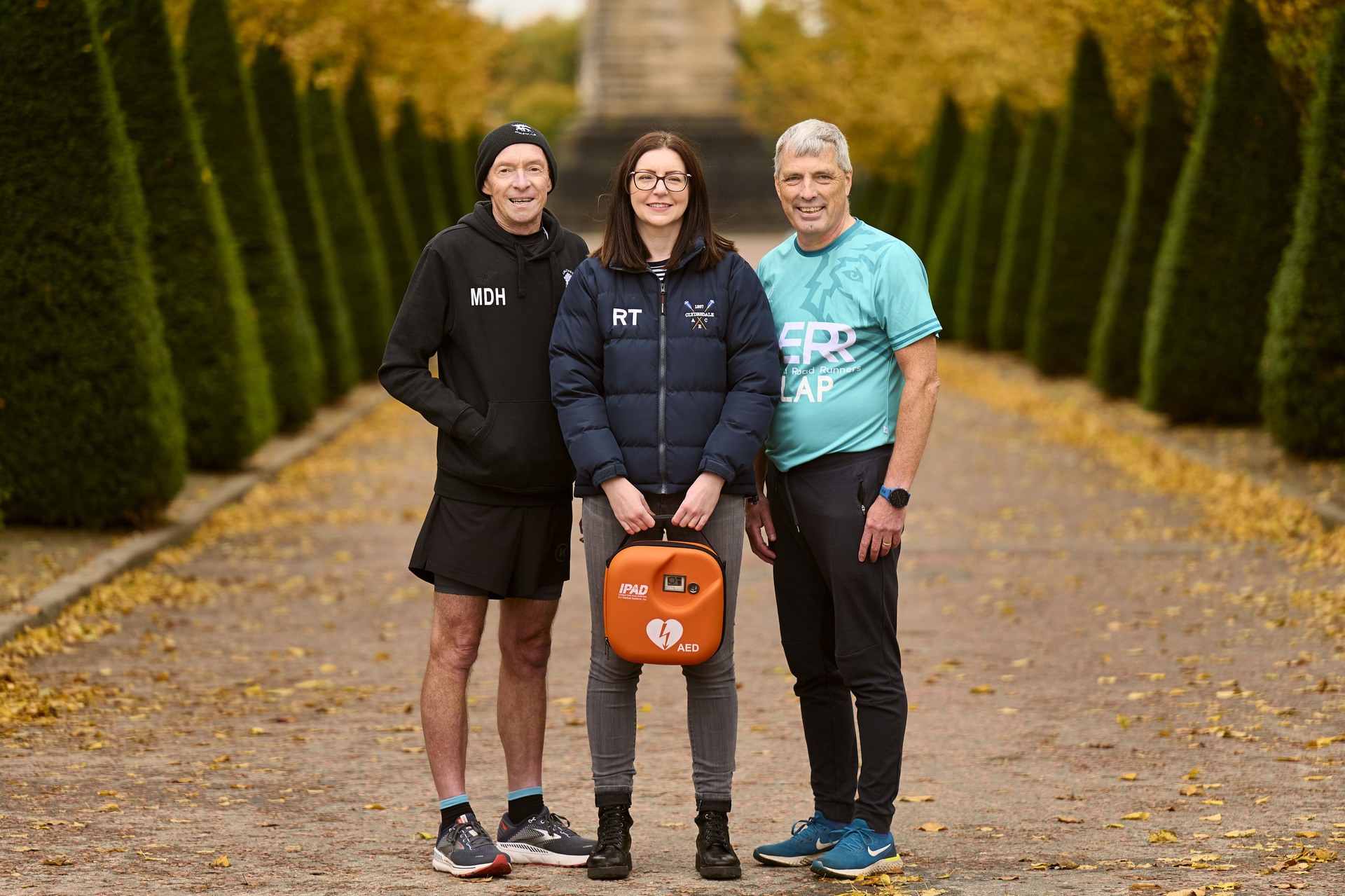 British Heart Foundation
British Heart FoundationRebecca Toal, a GP and amateur rower had recently ensured the boathouse had a defib and that it was registered on The Circuit.
She has the volunteer role of “defibrillator guardian” which means she ensures the defib is reset and ready for use again when it has been used.
“When I found out that our defibrillator had saved two men’s lives it was overwhelming and quite emotional,” she said.
“Had the defibrillator not been available to the public and registered on The Circuit then these two men may have lost their lives.”
She added that registration of the defibrillator was a “no-brainer” and didn’t require much effort.
Availability of defibrillators is crucial in the event of a cardiac arrest, but it is impossible to know how many defibrillators there are across Scotland which are not registered, and not visible to the emergency services and available to the public.
There are currently over 98,000 defibrillators registered on The Circuit across the UK, but they are not evenly distributed.
Data has shown that deprived communities need better support to help improve response times to out-of-hospital cardiac arrest.
Neither Malcolm nor Stephen knows what caused their cardiac arrests, but both have now been fitted with ICDs (implantable cardioverter defibrillators) which will issue a shock to their heart in the event of another cardiac arrest.
There are around 3,200 out-of-hospital cardiac arrests (OHCAs) in Scotland each year and the survival rate is less than one in ten.
Judy O’Sullivan, director of Innovation in Health Programmes at the British Heart Foundation said a defibrillator can mean the difference between life or death in emergency situations.
“Every minute someone has to wait for a defibrillator, their chance of survival drops by 10%,” she said.
“It is vital that the emergency services know where defibrillators are so they can direct people to access them quickly and easily.”
She added: “Worryingly, all too often when someone has a cardiac arrest the location of the nearest available defibrillator is unknown because many of these life-saving devices are not visible to ambulance services.
“We’re determined to change this by urging organisations with a defibrillator to register it online immediately on The Circuit; the national defibrillator network which is connected to every UK ambulance service. “
Follow STV News on WhatsApp
Scan the QR code on your mobile device for all the latest news from around the country


